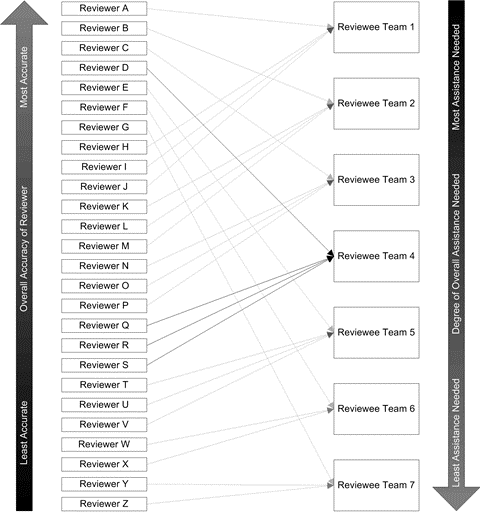Developing Artifact Peer Review Assignment Methodologies to Maximize the Value of Peer Review for Students
PI Matthew Verleger
This engineering education research project seeks to develop a proof-of-concept peer review matching algorithm and demonstrate if it is a valuable and viable methodology for conducting peer review. Peer review is a proven method that has positive impact on student learning. The project will test the algorithm on Model Eliciting Activities in the engineering classroom, and investigate how changing peer review can affect student learning.
 The broader significance and importance of this project is the transformative potential of improving peer review processes, since peer review is used throughout STEM and medical fields. Thus this preliminary investigation can extend outside the realm of improving student learning. This project overlaps with NSF's strategic goals of transforming the frontiers through preparation of an engineering workforce with new capabilities and expertise. Additionally NSF's goal of innovating for society is enabled by supporting the development of innovative learning systems.
The broader significance and importance of this project is the transformative potential of improving peer review processes, since peer review is used throughout STEM and medical fields. Thus this preliminary investigation can extend outside the realm of improving student learning. This project overlaps with NSF's strategic goals of transforming the frontiers through preparation of an engineering workforce with new capabilities and expertise. Additionally NSF's goal of innovating for society is enabled by supporting the development of innovative learning systems.
- Learn more about research projects in the Daytona Beach College of Engineering and its Department of Engineering Fundamentals.
Research Dates
07/01/2013 to 06/30/2017
Researchers
Categories: Faculty-Staff

